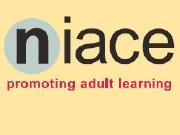NIACE calls for a new approach to adult numeracy

The government must adopt a new approach to adult numeracy to focus on the skills needed for everyday life, according to lifelong learning NGO NIACE.
Publishing seven recommendations today following an independent inquiry into these skills, NIACE director of operations Carol Taylor warned of a huge numeracy problem in this country.
“We see having poor numeracy skills – being bad at Maths – as a badge of honour,” said Ms Taylor.
“No one would dream of boasting that they couldn’t read, but many people stand on platforms, write in blogs, appear on radio and television TV, admit to friends and colleagues, proudly showcasing our inability to handle everyday maths.
“This inquiry into adult numeracy is a response to the urgency of the current situation. We have made a set of recommendations to help shape a new way forward for how we talk about numeracy and maths, how we can engage more adults in better numeracy learning, support them so they continue learning and assess them to chart their progress.
“These recommendations are not just about spending more money but spending the current budget in a way that works better for adults.”
The Seven Recommendations from NIACE’s Independent Numeracy Inquiry are:
- … to change the way we think about adult numeracy.
Adult numeracy should not be thought about solely in terms of the maths that is taught in school. We recommend the Government adopt a new approach to numeracy that focuses on how adults use it in everyday life and that is how it should be taught. Poor numeracy skills should not be seen as a badge of honour.
- …a new measure of how well adults use numeracy.
We recommend a new way of measuring how well adults use numeracy everyday – for example how they manage bills, make decisions about credit and estimate time.
- …more, different and better adult numeracy provision.
We recommend that numeracy provision should be available through a wider range of organisations – including workplaces and community groups and not only from education providers – to encourage more flexible numeracy learning through bite-sized and informal provision. This should include embedding numeracy with vocational, family and other learning.
- …more numeracy teachers and a new group of people to support adult numeracy learning.
We recommend that as well as more adult numeracy teachers being trained we need more numeracy champions, including family support workers, learning reps and job centre staff, to signpost and support learners.
- … to prioritise adults with the poorest numeracy skills.
Those with the poorest skills have barely been touched by the Skills for Life strategy. We recommend prioritising resources to help adults address their fear of numeracy and encourage them to improve their skills, by making what they learn relevant to their everyday lives.
- …an ‘all-age’ strategic forum for key organisations and government to work together to improve adult numeracy learning.
We recommend that the Government bring together a range of organisations to research, develop and improve numeracy in line with this Inquiry’s recommendations, which will improve the numeracy learning of both children and adults.
- …more in-depth research to ensure we know what works best for adult numeracy learners.
We recommend the Government and appropriate partners should continue to research and evaluate adult numeracy provision to chart progress on what works best for adults.
Susannah Fairbairn






Responses